
NGC 167 is a spiral galaxy located approximately 172 million light-years from the Solar System in the constellation Cetus. It was discovered in 1886 by Francis Preserved Leavenworth.
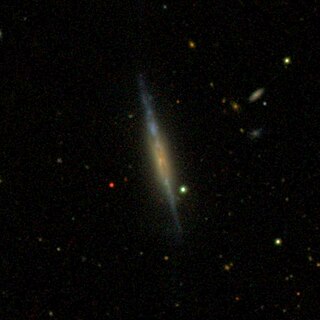
NGC 172 is a barred spiral galaxy located around 136 million light-years away in the constellation Cetus. It was discovered in 1886 by astronomer Frank Muller.

NGC 203 is a lenticular galaxy located approximately 233 million light-years from the Solar System in the constellation Pisces. It was discovered on December 19, 1873 by Ralph Copeland.

NGC 207 is a spiral galaxy roughly 178 million light-years from the Solar System in the constellation Cetus. It was discovered on December 7, 1857, by R. J. Mitchell.
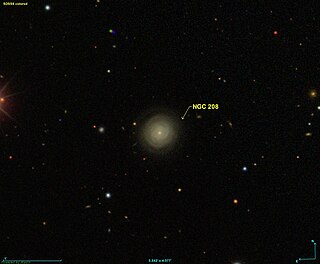
NGC 208 is a spiral galaxy located approximately 229 million light-years from the Solar System in the constellation Pisces. It was discovered on October 5, 1863 by Albert Marth.
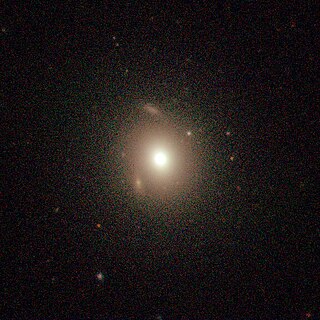
NGC 209 is a lenticular galaxy located approximately 175 million light-years from the Solar System in the constellation Cetus. It was discovered on October 9, 1885 by Francis Leavenworth.

NGC 212 is a lenticular galaxy located approximately 369 million light-years from the Solar System in the constellation Phoenix. It was discovered on October 28, 1834 by John Herschel.
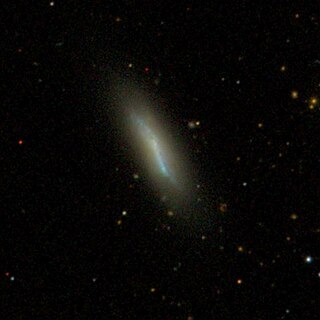
NGC 216 is a lenticular galaxy located approximately 68.8 million light-years from the Sun in the constellation Cetus. It was discovered on December 9, 1784 by William Herschel.

NGC 217 is a spiral or lenticular galaxy located approximately 178 light-years from the Solar System in the constellation Cetus. It was discovered on November 28, 1785 by William Herschel.

NGC 218, also known as UGC 480, is a spiral galaxy located approximately 500 million light-years from the Sun in the constellation Andromeda. It was discovered on October 17, 1876 by Édouard Stephan, and is interacting with the galaxy PGC 2726.
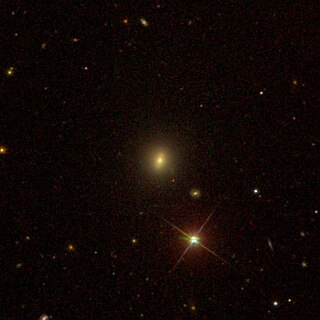
NGC 219 is a compact elliptical galaxy located approximately 245 million light-years from the Sun in the constellation Cetus. It was discovered on September 16, 1863 by George Bond.

NGC 223 is a spiral galaxy located approximately 238 million light-years from Earth. It is located in the constellation Cetus. It was discovered on January 5, 1853, by George Bond.

NGC 226 is a spiral galaxy located approximately 216 million light-years from the Sun in the constellation Andromeda. It was discovered on December 21, 1786 by William Herschel.

NGC 227 is a lenticular galaxy located approximately 237 million light-years from the Sun in the constellation Cetus. It was discovered on October 1, 1785 by William Herschel.

NGC 275 is a barred spiral galaxy located approximately 63 million light-years from the Solar System in the constellation Cetus. It is one of a pair of galaxies, the other being NGC 274. It was discovered on October 9, 1828, by John Herschel.

NGC 276 is a barred spiral galaxy located approximately 626 million light-years from the Solar System in the constellation Cetus. It was discovered in 1886 by Frank Muller and was later also observed by DeLisle Stewart.

NGC 301 is a spiral galaxy located approximately 204 million light-years from the Solar System in the constellation Cetus. It was discovered in 1886 by Frank Muller.

NGC 359 is an elliptical galaxy located approximately 238 million light-years from the Solar System in the constellation Cetus. It was discovered on September 2, 1864, by Albert Marth. It was described by Dreyer as "extremely faint, very small."
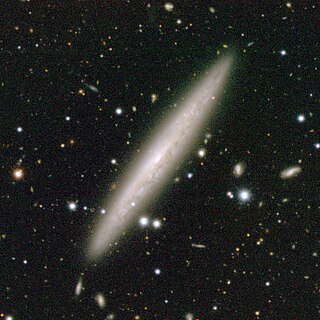
NGC 360 is a spiral galaxy located approximately 103 million light-years from the Solar System in the constellation Tucana. It was discovered on 2 November 1834 by John Herschel. Dreyer, creator of the New General Catalogue described the object as "extremely faint, very much extended 145°, very little brighter middle."
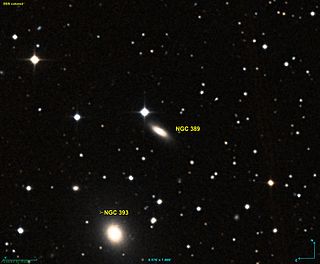
NGC 389 is a lenticular galaxy located approximately 239 million light-years from the Solar System in the constellation Andromeda. It was discovered on September 6, 1885 by Lewis Swift. It was described by Dreyer as "extremely faint, extremely small, round, star near."




















